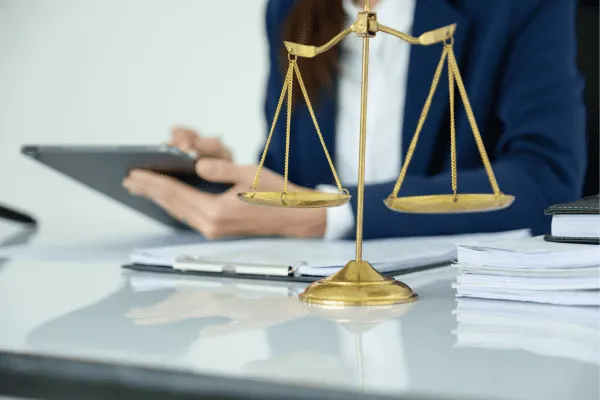In the dynamic world of law, effective communication isn’t just about exchanging updates—it’s the cornerstone of building strong attorney-client relationships. From understanding client needs to providing strategic guidance, communication is the thread that weaves trust and confidence. Let’s delve into what effective attorney communication truly entails and how it transcends mere updates.
The Foundation of Trust
Effective attorney communication begins with trust. Clients entrust their most sensitive matters to legal professionals, expecting not just legal expertise but also a genuine commitment to understanding their concerns.
- Empathy in Action: Skilled attorneys go beyond legal jargon, empathizing with clients’ emotions and perspectives. They actively listen, validate concerns, and foster an environment where clients feel heard and supported.
- Transparency Builds Confidence: Transparency breeds trust. Attorneys who are transparent about processes, timelines, and potential outcomes empower clients to make informed decisions. Clear, honest communication lays the groundwork for a robust attorney-client relationship.

Tailoring Communication Styles
Every client is unique, and so are their communication preferences. Effective attorneys adapt their communication styles to align with clients’ needs, ensuring clarity and resonance in every interaction.
- Personalized Approach: Understanding clients’ preferred communication channels—whether it’s emails, phone calls, or in-person meetings—demonstrates attentiveness and respect for their preferences.
- Clarity over Complexity: Legal matters can be complex, but effective communication simplifies rather than complicates. Attorneys articulate legal concepts in plain language, empowering clients to grasp the nuances of their case effortlessly.
Proactive Engagement
Anticipating client needs and providing proactive guidance is the hallmark of experienced attorneys. Instead of waiting for clients to reach out, proactive communication demonstrates dedication and foresight.
- Timely Updates: Regular updates, even if there are no significant developments, reassure clients of ongoing progress and prevent uncertainty from festering.
- Educational Resources: Sharing relevant legal resources and insights equips clients with knowledge to navigate their situation confidently. From articles to case studies, providing educational materials fosters informed decision-making.
Collaboration and Feedback
Attorney-client relationships are symbiotic—collaboration and feedback enrich both parties’ understanding and lead to better outcomes. Effective attorneys foster a culture of collaboration, inviting clients to actively participate in the legal process.
- Open Dialogue: Encouraging clients to ask questions and express concerns cultivates an open dialogue. Attorneys value client input, integrating feedback to tailor legal strategies to their specific needs.
- Continuous Improvement: Soliciting feedback at key milestones demonstrates a commitment to continuous improvement. Attorneys reflect on client input, refining communication strategies to enhance client satisfaction continually.

Resolving Challenges with Grace
In the course of legal representation, challenges inevitably arise. How attorneys navigate these challenges, and communicate with clients during adversity, speaks volumes about their professionalism and dedication.
- Candid Discussions: Addressing challenges head-on with honesty and integrity builds resilience in the attorney-client relationship. Instead of avoiding difficult conversations, skilled attorneys approach them with empathy and candor.
- Solution-Oriented Approach: Presenting solutions, even in the face of adversity, reassures clients that their best interests remain the priority. Attorneys brainstorm alternatives, involving clients in the decision-making process every step of the way.
Celebrating Milestones Together
While legal proceedings can be arduous, celebrating victories—big or small—solidifies the bond between attorney and client. Recognizing achievements fosters a sense of camaraderie and motivates clients to persevere.
- Acknowledging Progress: Whether it’s winning a motion or reaching a settlement, acknowledging milestones demonstrates appreciation for clients’ resilience and collaboration.
- Looking Ahead: Celebrating milestones isn’t just about looking back; it’s also about looking forward with optimism. Attorneys inspire confidence by outlining the next steps and reaffirming their commitment to achieving clients’ objectives.
Conclusion: Elevating Legal Experiences
Effective attorney communication transcends the exchange of updates—it’s a multifaceted approach rooted in trust, empathy, and collaboration. By tailoring communication styles, embracing transparency, and navigating challenges with grace, attorneys elevate the legal experience for their clients. As stewards of justice and advocates for their clients’ rights, attorneys wield the power of communication to not only convey information but also to cultivate meaningful connections that endure beyond the confines of a case. In the realm of law, effective communication isn’t just a skill—it’s an art form that shapes outcomes and transforms relationships.

